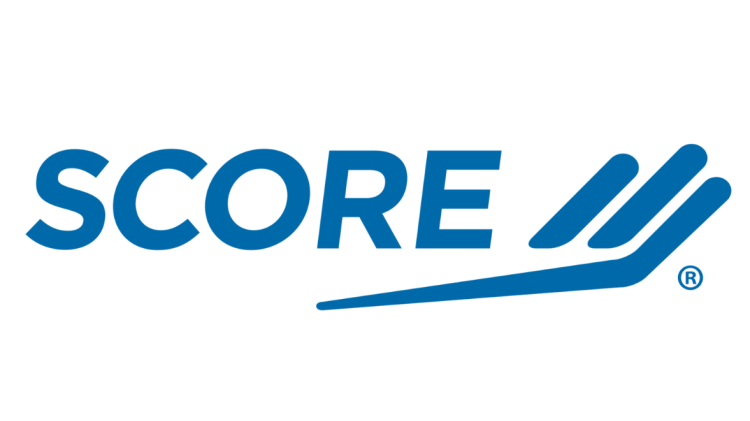Resources for National Write a Business Plan Month

December marks National Write a Business Plan Month. With the new year on the horizon, the timing is perfect – as the 12-month cycle restarts with the drop of a ball, small businesses are given the opportunity to establish goals and set agendas. Writing and formulating a business plan is vital for every small business. Whether you’re just getting started or working to grow, a solid business plan will have you organized and ready to manage finances, marketing, and so much more.
“I think it’s (writing a business plan) essential…we do it at Kicksite every year,” Kicksite CEO and Owner Jason Neef said. “Whether you’re a new business or you’re a long standing established business – we’ve been around almost 20 years, and every year, we go into the year with a plan. So, I’d say it’s mission critical to have a business plan each and every year.”
When creating a business plan, there isn’t just one route to roll with. Typically, there are many different paths you can take to set up your business for success. According to one of the greatest contributors to small business, The United States Small Business Administration (US SBA), there are two that stand out: The Traditional Business Plan and The Lean Startup Plan. They each have their own purpose depending on your situation, that the US SBA explains HERE. After finding which one is best for you, you can read their more in-depth breakdown HERE.
Now, what is the United States Small Business Administration and why should you look into their assistance and guidance?
The United States Small Business Administration
The US Small Business Administration is all things small businesses in the US. They are an independent agency of the United States government that works to help start up small businesses. Additionally, they continue to support business’ growth after starting up and are prepared to assist with any recovery you may need. They have a vast amount of resources at your disposal that you can find on their website to make sure your business is rolling along smoothly.
US SBA Resources
- Learning Dashboard (Journeys) | SBA Journeys are trackable learning guides that cover a range of topics like Strategic Marketing, Financial Strategy, Managing Sales, and more.
- Business Guide | The SBA Business Guide offers a step-by-step series of articles that educate business owners on numerous topics across Planning, Launching, Managing, and Growing a business. These include basics like writing your business plan, as well as more advanced topics like utilizing AI and expanding to new locations.
- Small Business Developmental Centers | Enter your ZIP code here and you can find a Development Center near you that provides free business counseling and training. Many centers also hold periodic business workshops.
- Business Plan Examples
- Traditional Business Plan
- Lean Startup Plan
- Funding Program Resources
- Local Resources and Assistance
- Loans
- 10-Steps to Starting a Business

SCORE: Another Small Business Resource
Another network of people helping small businesses is SCORE. As a resource partner with US SBA, SCORE offers mentorship, workshops, and events to aid small businesses wherever they are on their journey. In 2022 alone, they mentored over 300,000 unique clients while helping 77% of businesses stay in business, according to a US SBA blog post.
SCORE Resources
- Mentors (Mentor Matchmaker)
- Workshops and Events
- Business Templates
- Online Courses
- Volunteer Opportunities
- Disaster Recovery and Preparation Resources
- Resource Hub (Diverse set of resources for different entrepreneurs)
- Recorded Webinars
Business Plans for Martial Arts Schools
The resources from both the US SBA and Score are wonderful assets to explore during National Write A Business Plan Month and use in your small business journey, especially for martial arts school owners. Jason Neef has worked with martial arts businesses for nearly 20 years. He has seen what’s worked for martial artists to thrive as business owners and what has led to some failures. Here’s some tips for National Write a Business Plan Month to successfully execute your plan and grow your school.
Jason’s Martial Arts School Business Plan Advice
Define what is success to you
Success means different things to different people, and that’s okay! But before diving into a business plan (and ideally, before starting your business), you’ll establish that definition of success so you can shape your plan around it. If money and growth are your markers of success, then your plan should center on signing up more students, generating prospects, and converting those leads. If your idea of success is freedom and free time, then you’ll need to focus on building up more resources and people on staff so you can offload work and delegate tasks.
Be deliberate about your goals
Once you’ve defined your meaning of success, you’ll craft goals to help you get there. But these goals shouldn’t be overly broad or vague. Each goal should be crafted with the intention of pushing you further towards success. For example: If your idea of success is growth, what is your specific goal for new students gained per month?
Don’t have too many things going on
A focused business plan is a good one. Having 3-5 highly intentional goals vs. 10-15 broad ones allows you to hone in on what needs to be done to succeed. Things are less likely to get lost in the shuffle or forgotten, and you won’t feel stretched thin trying to make too much happen over the course of the year.
Include staff in business plan
Your idea of success and your goals can’t be successfully accomplished if you’re the only one who knows about them. As your support system, your staff should be fully aware of and aligned with what you’re aiming to achieve, and maybe just as important, HOW you plan to achieve it. With that knowledge, they can help by executing their roles with goal-driven intention.
Follow up consistently
Business plans aren’t “set it and forget it.” You should be revisiting your plan on a regular basis to evaluate how you’re progressing towards your goals. Consider what’s working, what isn’t, and what needs to be adjusted going forward. To make sure you’re following up as needed, set up calendar reminders on a monthly and quarterly basis to do your reviews.
